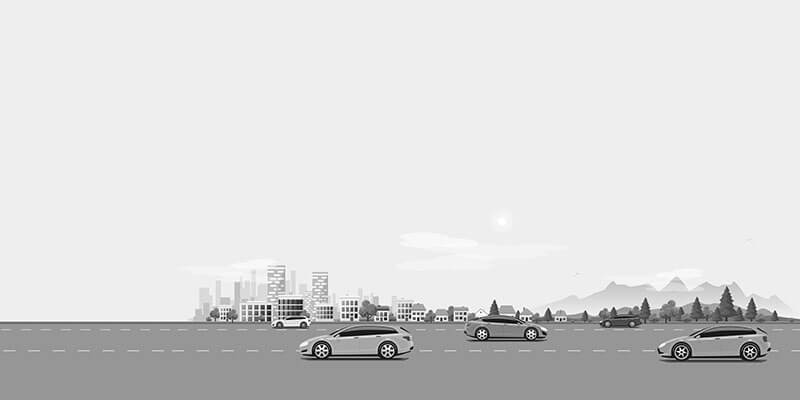Alaa Elshimy, Alaa Elshimy, MD & SVP, Huawei Enterprise Business Group, Middle East explains how smart technology will keep cities moving well into the future.

A digitally-enabled world means more than connecting people via 5G; it means providing convenient new ways to enhance the world around us, such as by using technology to augment transportation systems and traffic networks to increase reliability, efficiency, safety, and environmental friendliness. Physical infrastructure stands to benefit from digital development as much as anything else, and society can only gain when transportation is empowered by smart technology.
Anyone who has lived in a major city will have likely experienced the ups and downs of commuting. Whether by road, bus, train, metro, or any other form of transportation, the fact is that urban residents need reliable, seamless ways to traverse the city – but there are nearly always pitfalls in today’s congested environments. Picture city highways; the London Underground and New York City Subway at rush hour, or trying to hail a taxi cab during peak hours. Cities are crowded with people eager to get where they need to be, and with most of us working similar schedules, we’re typically all trying to get places at the same times of day, leading to congestion, frustrations, and possibly even road accidents.

If it seems bad today, imagine what your commute will be like in 10 years or so, when the world’s population has grown by around a billion people and an estimated seven billion people will live in cities around the world…
Smart technology is essential in order to keep cities moving well into the future. Digital transformation of the transportation sector, via robust communications solutions and solid networks, will enable the sector to evolve in sync with the city around it. After all, a smart city cannot fully thrive or realise its true potential if its transportation network remains unevolved.
But even more than enabling people to move seamlessly from A to B, a smart transportation system has the potential to improve quality of life, too. For one, fewer traffic jams should lead to less road rage and lower stress levels amongst drivers and passengers. Studies have found that adding just 20 minutes to a daily commute has the same negative effect on job satisfaction as receiving a 19 per cent pay cut, so cutting down commute time should reflect positively on personal happiness as well as potentially boosting employee engagement.
And, of course, there is the environmental aspect to consider, as technology can certainly play a role in making transportation networks more green, with fewer emissions and a lower impact.
Today’s transportation systems do take advantage of some offerings from the information and communications technology (ICT) sector – consider Dubai’s driverless metro system, for example, or the smart cameras that are installed on roads across the region. There is considerably more that can be done, however, to enhance it further.
Take roads, for example. It isn’t always possible to expand a frequently-used road to make room for more vehicles, and even if there is room to do so that will not necessary solve the problem of congestion. Intelligent video surveillance systems (IVS), however, can monitor troublesome areas and identify issues using real-time analytics and big data, which can then be communicated to drivers. This gives the opportunity for drivers to change course and avoid hotspots, thereby lessening the congestion. Connected cars and autonomous vehicles will be able to make automatic suggestions to drivers based on data sourced from the IVS cloud. Perhaps even more valuable here is the benefits of IVS for informing emergency services of any incidents that require urgent attention.
Now, consider the benefits of smart parking. This is something that anyone who drives a car will understand the frustrations of, especially when visiting a popular area such as a shopping mall or commercial district. Parking availability can be in short supply in many cities around the world, which is why smart parking is gaining appeal. Smart parking improves the experience for everyone, by allocating drivers to parking spots, alleviating congestion, and helping to better utilise space – something that is at an absolute premium in urban environments. Connected parking lots and spaces are essential in order to make smart parking a reality, but there is still a considerable way to go in order to shift from the silos that they currently exist within. Various shopping malls around the region have implemented the beginnings of smart parking by installing sensors that inform drivers of availability, but in order for this to become a seamless network these carparks must be connected to publicly accessible cloud-based system.
Blockchain also has a role to play in smart transportation. Databases can be used to coordinate all aspects of vehicle ownership, such as insurance, registration, road taxes due, fines accumulated, vehicle reselling, servicing schedules, maintenance requirements as communicated by connected vehicles, and much more. Developing a system such as this will require collaboration between the public and private sector, but it will ultimately lead to a more efficient, safe, and convenient transportation network for any vehicle owners and traffic regulatory bodies as well.
Huawei has numerous solutions that can contribute to the development of smart transportation networks for cities, including cloud data centers, smart cameras, wired and wireless networks, and, of course, 5G. 5G will prove significant to the future of smart transportation, as it will enable stronger, faster connectivity with lower latency and the ability to support an increased number of connected devices, whether they be cars, cameras, road signals, metro trains or otherwise.
ICT frameworks will form the heart of smart transportation, just as they are at the center of smart city development. From 5G to AI, big data to cloud data centers, the more solid and robust the ICT framework is, the more advanced the world around it can become – and the more people can benefit from living in a smart city environment with seamless transportation powered by cutting-edge technology.





